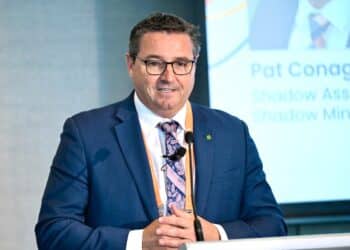Responses to the Quality of Advice Review (QAR) proposal paper has been largely positive from industry groups following its release on Monday (29 August).
In the paper, QAR reviewer Michelle Levy confirmed she believes changes must be made to the regulatory framework and put forward a number of proposals, including that the financial services regime should regulate the provision of “personal advice” which should be “somewhat broader” to ensure clarity.
Shortly after the paper’s release, the Joint Associations Working Group (JAWG) – made up of 12 key associations including the AFA, FPA, FSC, SIAA, The Advisers Association and CAANZ – welcomed the release of the proposal paper.
“The paper sets out proposals to make it easier for consumers to have meaningful, fit-for-purpose conversations with their advice provider about all or part of their financial and lifestyle objectives while maintaining robust consumer protections – an objective the JAWG supports,” a statement from the group read.
“As a coalition of associations, the JAWG understands and values the broader community good and significant social benefits that come from financial advice done well, and we look forward to continuing our engagement with Treasury, Government and other stakeholders to advance this agenda.”
Meanwhile, the SMSF Association has also praised the paper, saying it will offer a pathway for the industry to focus on consumer outcomes and “not be burdened with excessive regulation”.
CEO John Maroney commented that the paper is a “breath of fresh air”.
“Where the proposal paper suggests removing the requirement for statements of advice (SOAs) to allow the profession to provide financial advice in a way that suits their customers, it concurs with the association’s recommendations to the review that certain types of advice should be able to be provided in a simplified form,” Mr Maroney said.
“We have long argued for the need to recognise the professionalism of the sector, cut excessive red tape, and put the consumer front and centre in the advice equation.”
Mr Maroney added that the QAR – set for release in December – comes at an “important junction” for the advice sector as the regulation implemented in recent years has made it more difficult for consumers to access quality financial advice.
“At the very time when it’s imperative more Australians have access to quality, affordable advice, the regulatory hurdles make that increasingly difficult,” he said.
“With this proposal paper, there is an opportunity to create an advice framework that puts consumers first while still safeguarding their interests.”
Similarly, the Financial Services Council (FSC) applauded the “sensible roadmap” put forward by Ms Levy, with CEO Blake Briggs welcoming the focus on outcomes for consumers over “out-dated compliance documents and red tape”.
“Financial advice is weighed down by layers of red tape that has pushed the cost of advice to more than $5000, putting it out of reach for most Australians,” Mr Briggs said.
“The review has listened to stakeholders and got the balance right, by detailing a framework that allows consumers to get advice on the topics they need, with all the necessary consumer protections, and through a channel that suits them, rather than a one-size-fits-all model.”
AMP Advice director Matt Lawler added that the paper acknowledges the “overregulation” that has hindered advisers’ ability to provide quality advice.
“In our view, the pendulum had swung too far,” Mr Lawler said.
“On initial review we’re encouraged by proposals to simplify the advice delivery process.
“We’re also supportive of measures that would encourage investment in technology and new ways of delivering advice in more affordable ways to more Australians.”
However, CHOICE has slammed the paper, calling it a “major step backwards in consumer financial protection”.
The consumer advocates – whose QAR submission was criticised by the AFA as “not being supportive of financial advisers” – said the proposals put forward by Ms Levy will “dismantle core consumer protections”.
In particular, CEO Alan Kirkland noted a concern about the proposal for “good advice” to replace best interests duty.
“The best interests duty was introduced after a decade of financial advice scandals that saw Australians lose hundreds of millions of dollars of their retirement savings. It emerged from years of widespread consultation and parliamentary inquiries. It would be astonishing if the parliament was willing to get rid of the best interests duty after a few months of behind-doors consultations with industry groups,” Mr Kirkland said.
“If the government removes the best interest duty as proposed in this report, we’ll go back to the bad old days that allowed scandals like those involving Commonwealth Financial Planning and Storm Financial to occur.
“This would be an incredible disappointment to the victims of financial advice scandals who gave evidence to the Royal Commission.”
Financial Counselling Australia CEO Fiona Guthrie agreed, adding: “The community has a right to expect that financial advisers should act in the best interests of the client. Who else should it be?
“Watering this obligation down would take the profession back to the bad, old days.”
Feedback on the proposal paper is now open and closes on 23 September 2022.
Ms Levy recently discussed progress on the QAR on the ifa Show podcast. Listen to the full episode here.




I think it depends what large industry funds have stated to the Finance Minister – so they can provide cheap advise!
It’s not a good sign that the Code of Ethics has been embraced when consumer advocates state we are watering down hard earned protections. How can we move to a principles based legislative base if we don’t, or can’t be trusted to, judiciously exercise appropriate professional judgement? The Code is principles based and has been met with all the wrong responses. So, if we really do want change, the Code has to be the main focus of the day to day so it becomes the rhythm of the industry as it moves towards a profession. Compliance with the Code requires a sound understanding of the ethical biases ever present in the human condition and how they influence behaviour in order to be able to confidently exercise of professional judgement
Product issuers are not advisers and should have their own regime. DDO is new so possibly hasn’t had the impact it was designed to do.
We are at the start of the professionalism journey and the recommendations from this review have to be viewed from that perspective. Give the Code of Ethics and the DDO regime a chance to dance. They are the shoring up that was required to allow the potential relaxation of some of Chapter 7.
I am not sure I agree. I do understand your viewpoint. Personally, I think the complexity of the whole system/regulation is the problem here. Layers and layers and layers. Take the FDS as an example. They couldn’t have made this more complex if they tried, for what is simply an annual payment. Personally, I think the whole system needs to be tossed out, and we start again.
100% agree the fee disclosure regime is over the top. It is the sledgehammer to open the nut of the “fees for no service” revelation.
All this posturing and speculation will amount to very little, its what Minister Jones thinks that matters. Levy is a Liberal appointment, highly likely the Minister will not any comment until the final recommendations are released and then more than likely cherry pick and bin the rest. Rather ironic that Levy is dismantling all of the past Liberal compliance trash…..and the 3 stooges are back together assisting the Institutions.
exactly nailed it…, and what will those cherry-picked pieces be? …CARVE OUTS FOR SUPER FUNDS….. I suggest you move on from FASEA exam and start thinking about saving your bacon and look at the bigger picture, that being the annihilation of human lead advice because of those carve outs.
Seems very likely that Product providers will be providing the vast majority of Financial Advice for retail clients in Australia. Very clear reminder why I will never ever vote Liberal again. Really not sure how the Liberal benefit from all of this but there it is – Liberals did it.
Peter, speaking about posturing and speculation, when are you going to move your focus from trying to get more exemptions for people that don’t want to do the work to meet the education requirements.
Please stop trying to defend people that want to hold the industry back.
Jump aboard Michael J Fox, it’s back to the future we go!!
Let’s give unlicensed salespeople the ability sell products and hope they provide “good advice”!! No wonder the FSC, et al think this is a great step forward.
How about:
Two types of advisers:
1. Independent – the only qualification for this is you are not licensed by an AFSL that also has a financial interest in anything you recommend. No APL, unconflicted.
2. Aligned – they can keep working for whoever they want. Industry funds, AMP, IOOF, etc…but customers can easily identify that they will be recommending products their AFSL has an interest in. You go to AMP, but don’t be surprised they will recommend you move from an index fund to their own managed fund (or higher priced index fund)
All advisers need to be licensed
Scrap SOAs and ROA’s, but replace it with a standardised 1 page document outlining fees of your product v’s a Government monitored benchmark (this could be index funds, industry average, or something else)
Robo advice be scrapped, and instead call it what it is…funnelling people into their own investment.
Brilliantly put
Good advice will only work in a world where verticle intergration is outlawed. Unfortunately there remain too many vested interests in financial services (Product Providers, Dealer Groups etc) that use advice as a distribution of product and therefore the advice they provide is simplyt product selling.
The good advice theory is “reasonable basis” rehashed…
Good advice can work in an ideal world and benefit both clients and advisers, providing more engaging conversationa and imrpved outcomes, however we need to outlaw verticle intergation and the associated conflicts of interest.
I agree. I’m surprised that anyone things watering down some of the hard fought changes is the solution. You only need to look at the other professions to see what (apparently) works. Make the educational barriers to entry high and remove as many conflicts of interest as possible. And then allow the professionals to be professionals.
While the current proposal has many good aspects, unfortunately opening up advice to “all sorts of people” who have no qualifications and are effectively product sales people has been done before.
I agree, I think the proposals are really sound and would help. Although there must be another label or name given to providers that do not need to meet the Professional Standards and Education requirements.
Call it Sales Advice or Product Only Advice so consumers are aware there are no ethical standards mandated by the provider and a lower education requirement. This would demonstrate the inherent bias and provide a fairer transparent service to clients.
It must clearly differenciate (the proposal segregates scaled advice, why not segregate this portion so it is accurately described?). This way we don’t run into the general advice problem where consumers thought they were receiving personal advice.
I suggest two categories:
1, Professional Financial Adviser
2. Product Flogger
I think it has gone to the other side and feel that there needs to be some middle ground. Think of what would occur if the client does not like what you have implemented, and there is no document to demonstrate that it meets what they have asked the planner? It will lead to more legal issues. I can see both sides to this, but I feel there needs to be a middle ground and protection of the financial planner as well. Hey, when you sign your tax return each year, the onus is on the individual to state that they understand what they are signing. It does not appear to be the same for financial planners.
There is nothing stopping you from having a document that does this
but my accountant can tell me to set up a SMSF, roll my industry super fund into it, buy my commercial property and use those super fund to payoff the home mortgage on the back of a beer coaster. You cannot possibly compare a generic tax return, completed in a 5 minute meeting, spat out in 30 seconds to a SOA and the process an Adviser has to carry out to any Accounting advice. More than happy to do 20 appointments a day in 30 minute increments like accountants if you’re suggesting we have the same standards.
Levy has [b]not[/b] proposed replacing Best Interests Duty with a lesser “good advice” standard for licensed financial advisers. [b]Licensed advisers will still be subject to a Best Interest Duty[/b] via the legally enforceable Code of Ethics.
The so called “good advice” standard would apply to [b]unlicensed employees of banks and super funds[/b]. Levy is proposing these people be allowed to legally give financial advice, and at a [b]much lower standard than consumers would receive from a licensed adviser[/b]. This is a very bad idea. Not only will the advice be substandard, it will obviously be highly conflicted.
It is disappointing the adviser associations haven’t called out this poor component of an otherwise good set of proposals. It is also disappointing the consumer associations have completely misunderstood what is being proposed, and have consequently been well wide of the mark in their responses.
^^^^ This comment.
This is probably the most contentious point of what has been proposed as it will reverse the move towards greater Professionalism. The adviser associations are in survival mode due to dwindling overall adviser numbers. They need all of the ISN, Institutional and public service advisers’ membership fees that they can get, hence they are heavily conflicted.
But the adviser associations won’t get adviser membership fees from product companies anymore, if product companies are allowed to dispense advice via unlicensed call centre employees instead. Product companies will reduce their inhouse adviser numbers.
I agree with the comments made by Alan Kirkland from Choice. I can remember when ASIC used and promoted the term “good advice”. It was last century and led to all those scandals that have left us over-regulated. The proposal put forward by Levy may sound great on paper, but as always, the devil will be in the detail. Let’s not get too excited just yet.
Maybe you, and Alan Kirkland, should take the time to read and understand the proposals before making kneejerk responses.
“If the government removes the best interest duty as proposed in this report, we’ll go back to the bad old days that allowed scandals like those involving Commonwealth Financial Planning and Storm Financial to occur. Mr Alan Kirkland obviously has not thought through his response… it’s called the Code of Ethics which places a greater requirement, to place the interest of clients before anything else…
I think you will find the Code of Ethics for Financial Planners does not apply to Product Providers.
True. But Kirkland is saying the best interest duty would no longer apply to financial advisers. That is not what the Levy proposal says at all.
So the current cost of advice is $5000. If the changes come into effect I wonder by how much advisers will reduce their fees. I’ll bet $0.
I think you need to get over it.
For the past few years we have been absorbing the ever increasing costs, we need to get a return on that.
Depends – will ASIC scrap their levy? Will PI costs come down? Will licensees actually make advisers lives any easier? Will licensee fees come down?
Will licensees even exist?
Potentially not. Probably not in their current format.
you are missing the point
Would you prefer advice from an employee of a Product Manufacturer?
You might be correct, but then we need to now fund a “Compensation scheme of last resort” so fees may go up again…
Struggling to understand why an educated, experienced, professional adviser is expected to be cheap – $5000 is cheap, Joe Public spends just as much on Foxtel per year. In my experience, it indeed the leeches in ‘management’ positions in institution land that still do not grasp what it is advisers do for clients – here’s a hint, it is not selling product.
It is a disgrace that the AFA and FPA are lending the names of financial advice associations to the FSC.
Seems the AFA and FPA represent their product provider sponsors more than their members.